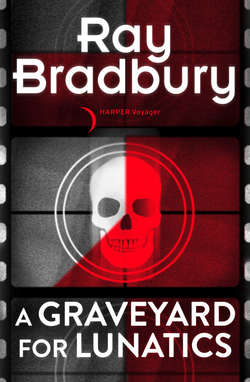Читать книгу A Graveyard for Lunatics - Рэй Брэдбери, Ray Bradbury, Ray Bradbury Philip K. Dick Isaac Asimov - Страница 17
Оглавление12
I looked at all those faces and said: “No. No, please. Roy and I will be ready soon, but right now …” I took a fast sip of bad Hollywood tap water, “I’ve been watching this table for three weeks. Everyone always sits at the same place. So-and-so up here, such-and-such over across. I’ll bet the guys down there don’t even know the guys over here. Why not mix it up? Leave spaces so every half hour people could play musical chairs, shift, meet someone new, not the same old guff from familiar faces. Sorry.”
“Sorry!?” Fritz grabbed my shoulders and shook me with his own laughter. “Okay, guys! Musical chairs! Allez-oop!”
Applause. Cheers.
Such was the general hilarity as everyone slapped backs, shook hands, found new chairs, sat back down. Which only suffered me into further confused embarrassment with more shouts of laughter. More applause.
“We will have to seat this maestro here each day to teach us social activities and life,” announced Fritz. “All right, compatriots,” cried Fritz. “To your left, young maestro, is Maggie Botwin, the finest cutter/film editor in film history!”
“Bull!” Maggie Botwin nodded to me and went back to her omelet, which she had carried with her.
Maggie Botwin.
Prim, quiet lady, like an upright piano, seeming taller than she was because of the way she sat, rose, and walked, and the way she held her hands in her lap and the way she coifed her hair up on top of her head, in some fashion out of World War I.
I had once heard her on a radio show describe herself as a snake charmer.
All that film whistling through her hands, sliding through her fingers, undulant and swift.
All that time passing, but to pass and repass again.
It was no different, she said, than life itself.
The future rushed at you. You had a single instant, as it flashed by, to change it into an amiable, recognizable, and decent past. Instant by instant, tomorrow blinked in your grasp. If you did not seize without holding, shape without breaking, that continuity of moments, you left nothing behind. Your object, her object, all of our objects, was to mold and print ourselves on those single bits of future that, in the touching, aged into swiftly vanishing yesterdays.
So it was with film.
With the one difference: you could live it again, as often as need be. Run the future by, make it now, make it yesterday, then start over with tomorrow.
What a great profession, to be in charge of three concourses of time: the vast invisible tomorrows; the narrowed focus of now; the great tombyard of seconds, minutes, hours, years, millennia that burgeoned as a seedbed to keep the other two.
And if you didn’t like any of the three rushing time rivers?
Grab your scissors. Snip. There! Feeling better?
And now here she was, her hands folded in her lap one moment and the next lifting a small 8-millimeter camera to pan over the faces at the table, face by face, her hands calmly efficient, until the camera stopped and fixed on me.
I gazed back at it and remembered a day in 1934 when I had seen her outside the studio shooting film of all the fools, the geeks, the autograph nuts, myself among them.
I wanted to call out, Do you remember? But how could she?
I ducked my head. Her camera whirred.
It was at that exact moment that Roy Holdstrom arrived.
He stood in the commissary doorway, searching. Finding me, he did not wave but jerked his head furiously. Then he turned and stalked out. I jumped to my feet and ran off before Fritz Wong could trap me.
I saw Roy vanishing into the Men’s outside, and found him standing at the white porcelain shrine worshiping Respighi’s Fountains of Rome. I stood beside him, noncreative, the old pipes frozen for the winter.
“Look. I found this on Stage 13 just now.”
Roy shoved a typewritten page onto the tile shelf before me.
The Beast Born at Last!
The Brown Derby Tonight!
Vine Street. Ten o’clock.
Be there! or you lose everything!
“You don’t believe this!” I gasped.
“As much as you believed your note and went to the damn graveyard.” Roy stared at the wall in front of him. “That’s the same paper and typeface as your note? Will I go to the Brown Derby tonight? Hell, why not? Bodies on walls, missing ladders, raked-over prints in grass, papier-mâché corpses, plus Manny Leiber screaming. I got to thinking, five minutes ago, if Manny and the others were upset by the scarecrow dummy, what if it suddenly disappeared, then what?”
“You didn’t?” I said.
“No?” said Roy.
Roy pocketed the note. Then he took a small box from a corner table and handed it to me. “Someone’s using us. I decided to do a little using myself. Take it. Go in the booth. Open it up.”
I did just that.
I shut the door.
“Don’t just stand there,” called Roy. “Open it!”
“I am, I am.”
I opened the box and stared in.
“My God!” I cried.
“What do you see?” said Roy.
“Arbuthnot!”
“Fits in the box real nice and neat, huh?” said Roy.
